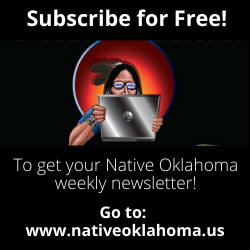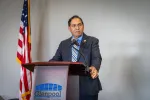

Treat, McCall top Stitt in tribal compacting case at Oklahoma Supreme Court
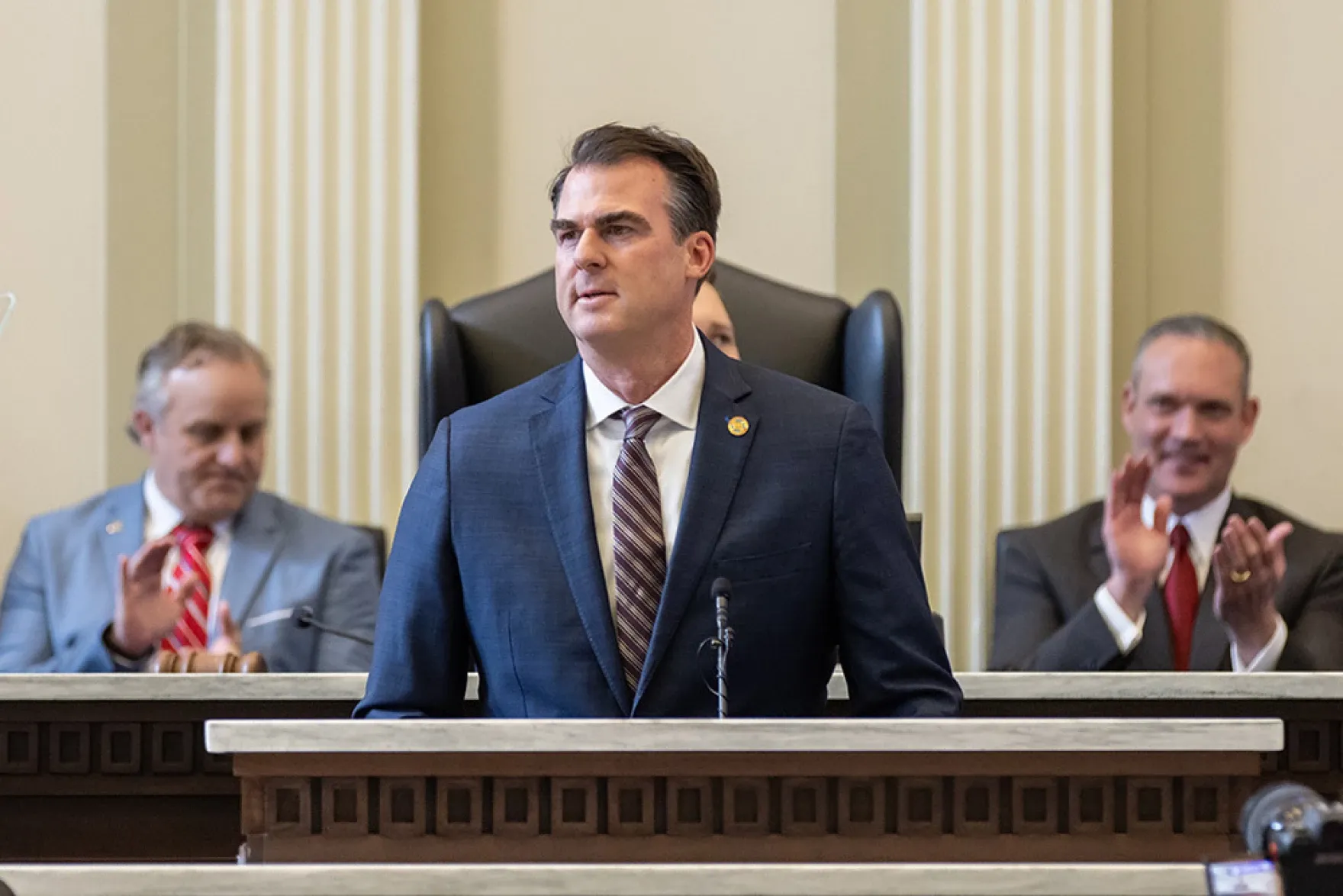
The Oklahoma Supreme Court says the state legislature has authority to override the governor’s vetoes on tribal compacts.
By Graycen Wheeler, Robby Korth
Last year, the legislature passed bills to extend existing compact agreements with multiple tribal nations over tobacco sales and license plates. Gov. Kevin Stitt rejected those extensions, saying they were a bad deal for the state.
Since those vetoes came after the end of the normal session, the legislature called a special session to override his vetoes.
Stitt said that violated the governor’s power to negotiate tribal compacts. He sued House Speaker Charles McCall and Senate Pro Tem Greg Treat, asking the court to void the overrides and declare the special session unlawful.
“We need the Supreme Court to let us know who has the authority,” Stitt said when he announced the suit. “Does the governor have the authority to negotiate the compacts or does the legislature?”
Now the Oklahoma Supreme Court has ruled unanimously: The special legislative session was constitutional, and Stitt’s vetoes were lawfully overridden. The Court also said the governor’s authority to negotiate compacts with Tribal Nations isn’t enshrined in the state constitution — it was bestowed by the legislature through statute.
Treat didn’t hold back in criticizing the governor in a news release about the ruling.
“This was an unsurprising, but welcome ruling by the Oklahoma Supreme Court,” Treat said in his written statement. “We knew from the onset this litigation was unproductive and a waste of taxpayer money. This is money that could have been spent on essential services for Oklahomans. Instead, it will go toward legal fees for outside counsel in a failed attempt on flawed logic and the governor’s authority to make policy decisions.”
Attorney General Gentner Drummond echoed Treat.
“Gov. Stitt has repeatedly abused his office to wage baseless legal battles against our Native American tribes, wasting millions of dollars in state resources,” he said in a statement.
Stitt responded that he is “thankful that today’s decision gives future governors clarity around compact negotiations.”
He touted his success in getting new compacts signed in 2024. He said his office is “in talks right now with Cherokee officials to broker a car tag compact, and before this ruling we were confident we would get that done.”
Stitt said he hopes lawmakers will join him in continuing those negotiations because of the amount of uncollected tolls from drivers with tribal nation car tags, an issue that’s come up before.
In the past, the Oklahoma Turnpike Authority has taken responsibility for the issues with collecting tolls.
“Now that we know that tribal governments can go to the Governor or the Legislature to negotiate compacts, I hope the Legislature agrees with me that we need to collect from every tag that drives on our toll roads,” he said in his statement.
Governor signs nine tobacco compacts with tribal nations
Meanwhile, the governor and nine different tribal nations have agreed to tobacco compacts. Most recently, a compact between the state and Choctaw Nation became public this week.
A tobacco compact serves as a framework for a tax revenue-sharing agreement of tobacco sales on the tribal nation’s reservation.
The spate of new compacts represents a thawing of an icy relationship between tribes and Stitt. Annually, these compacts net more than $100 million in tax money for state and tribal governments combined.
The nine tribal nations that have signed tobacco sales compacts with the state this year are:
- Apache Tribe of Oklahoma
- Chickasaw Nation
- Citizen Potawatomi Nation
- Wyandotte Nation
- Wichita and Affiliated Tribes
- Otoe-Missouria Tribe
- Cherokee Nation
- Caddo Nation
- Choctaw Nation
Additionally, the Chickasaw Nation has renewed its car tag compact with the state, though it’s the only tribal nation to do so this year.
Choctaw Nation Statement Regarding
Oklahoma Supreme Court Ruling on Tribal Compacts
DURANT, Okla. – Choctaw Nation of Oklahoma (CNO) Chief Gary Batton released the following statement following the Oklahoma Supreme Court’s decision on tribal compacts.
“We hope the state of Oklahoma can achieve clarity regarding who has the authority to negotiate and come to agreement with our government. Our focus is on crafting policies and compacts that mutually benefit our tribe, our members, our communities and all Oklahomans.”
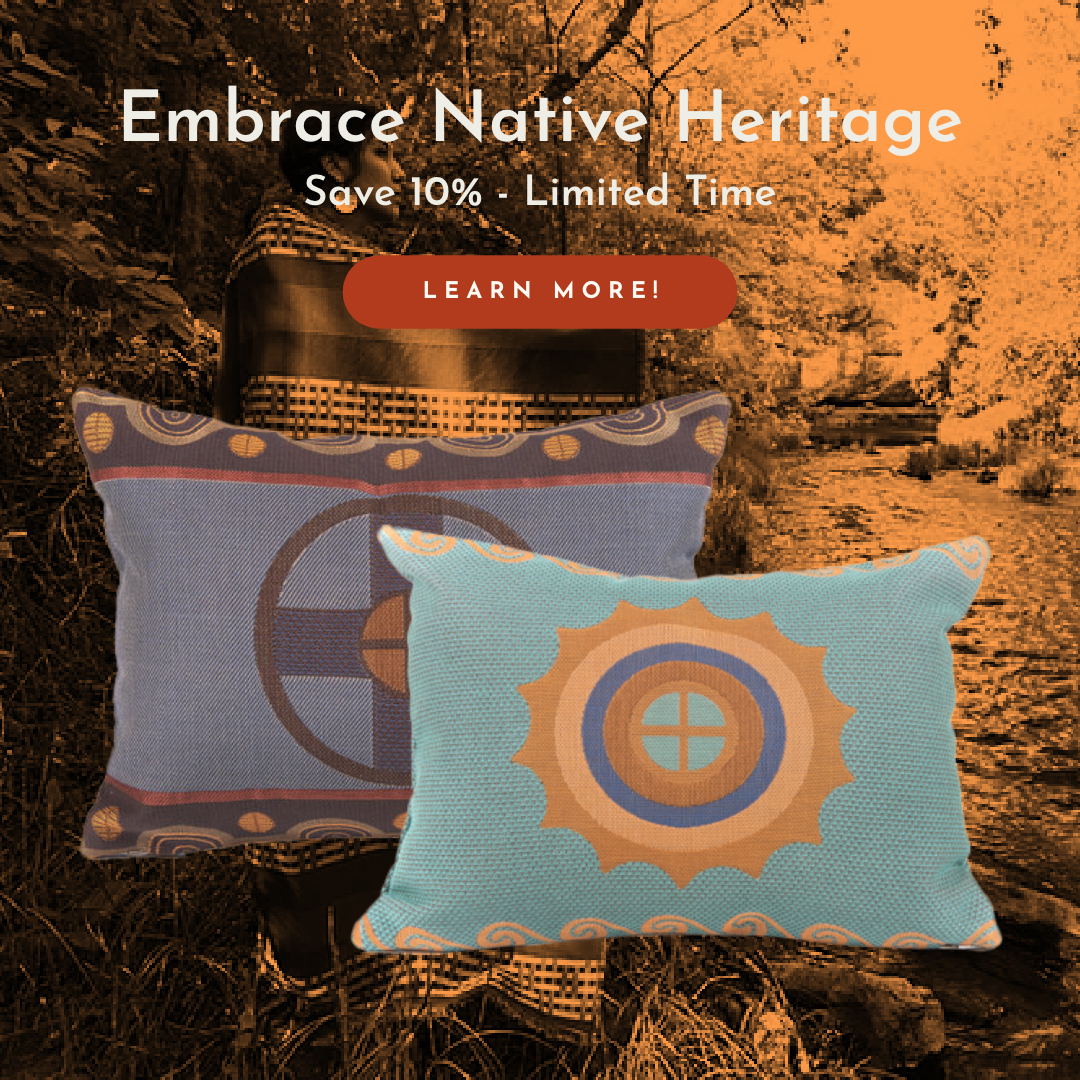
Chickasaw Nation launches private equity firm in Dallas
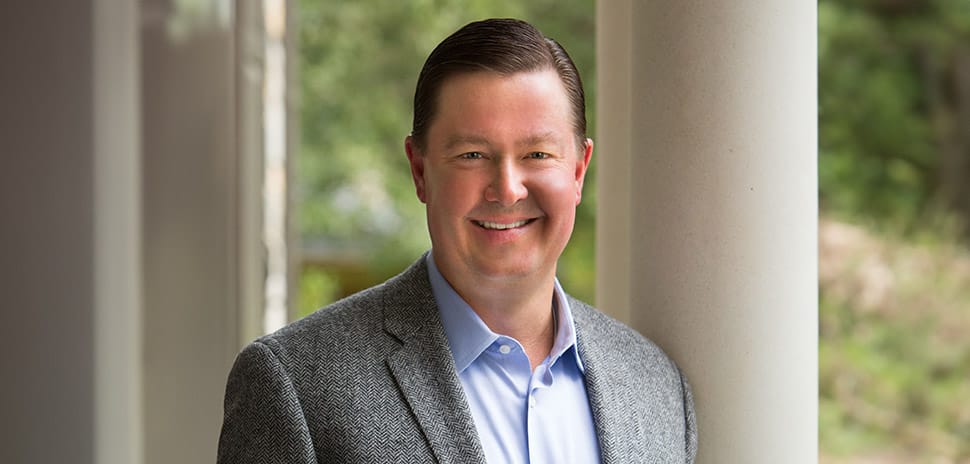
The Chickasaw Nation announced the establishment of Pennington Creek Capital, a private capital investment firm set to open an investment office in Dallas, Texas.
The new firm, a wholly owned subsidiary of Ada, Okla.-based Sovereign Native Holdco LLC, is part of the tribe’s strategy of investing in promising middle-market companies led by ambitious founders and visionary entrepreneurs with high potential for growth, cashflow, and a strong market position.
Dan Boren, secretary of commerce for the Chickasaw Nation, will serve as chairman of Pennington Creek Capital, which will be led by Curt Croffod, former managing director at Hicks Equity Partners in Dallas. At Hicks, Crofford invested in middle-market companies ranging in value from $30 million to $500 million in the specialty manufacturing, commercial aerospace and defense, food and beverage, software, oil and gas, and distribution sectors.
"Curt’s notable success in identifying and leading significant investments will bring a fresh perspective and energy to our firm,” Boren said in a statement. “We are excited to have him on board and look forward to what lies ahead.”
The new venture represents the tribe's second foray into private equity over the past year.
In mid-2023, Chickasaw Nation made an anchor investment in New York City-based Good Springs Capital, a new private investment firm that targets middle-market platform companies with entrepreneurial management teams in the industrial and services sectors.
Good Springs Capital, which gets its name from the natural springs on the Chickasaw Nation, was started by the team that founded and built Alleghany Capital, the private investment arm of Alleghany Corporation. From its inception in 2013, Alleghany Capital grew into a portfolio of eight platform companies generating revenue of nearly $5 billion in 2022.
“Through selective investments in established enterprises with solid leadership and strong values, Sovereign Native Holdco has driven economic expansion and growth for companies while generating returns we can use to deliver quality programs and services for the betterment and advancement of our citizens and the communities we serve,” Chickasaw Nation Governor Bill Anoatubby said in a statement.
The latest private equity investments are part of the tribe’s broad investment portfolio with venture capital and private investments in several industries including energy, healthcare, technology, real estate and other sectors.
Last fall, the tribe also received funding through the State Small Business Credit Initiative that included $8 million to make limited partner investments in venture capital funds focused on seed and early-stage businesses.
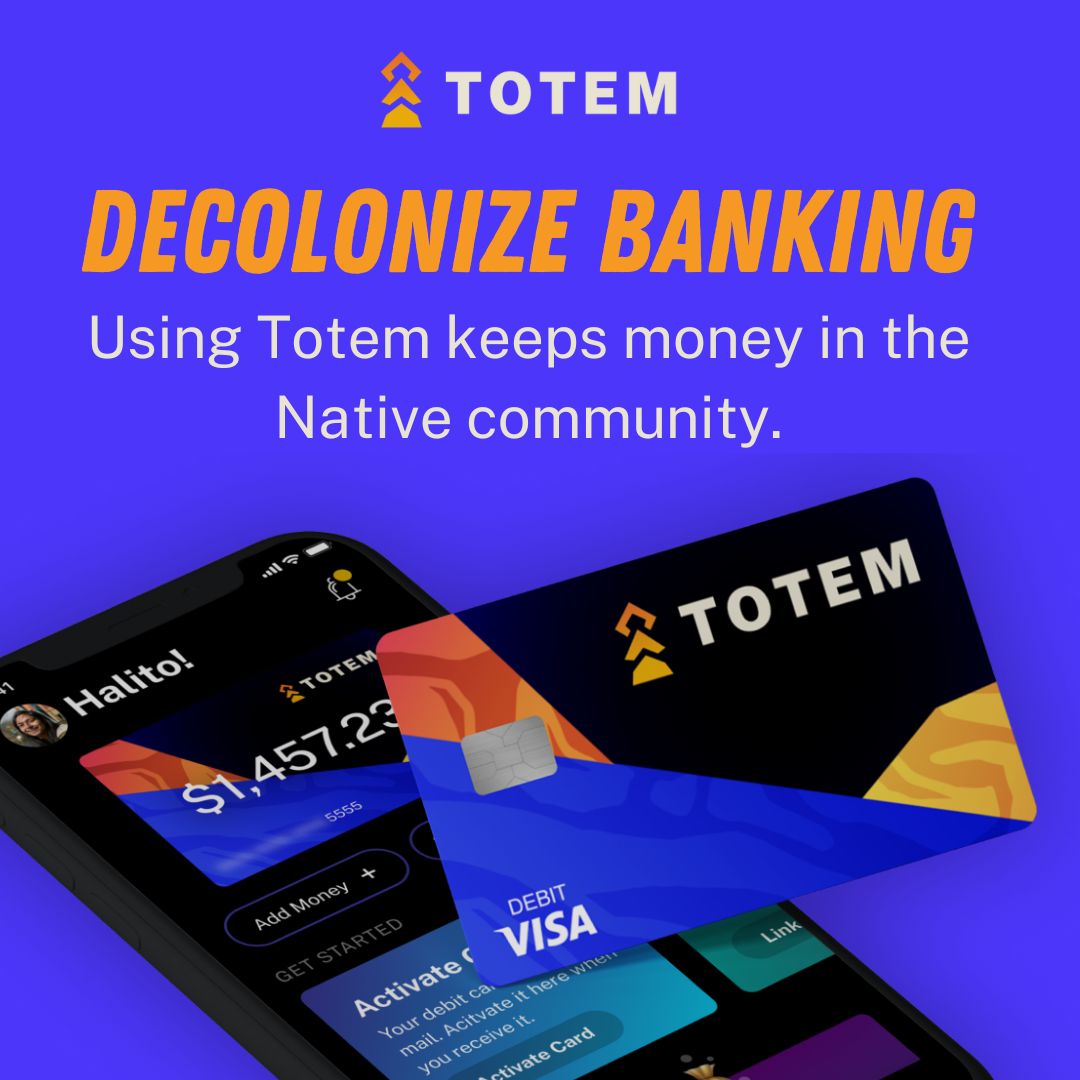
Cherokee Nation’s Gadugi Portal wins 2024 Smart Cities Award

TAHLEQUAH, Okla. — The Cherokee Nation’s Gadugi Portal, which empowers tribal citizens to stay engaged and connected in an easy-to-use online platform, recently won the 2024 Smart Cities awardee for the Civic Engagement category.
The Smart Cities awards recognize the progress North American municipalities and other governments have made and provide a forum for sharing best practices to help accelerate Smart City development in the region.
“It is an honor for Cherokee Nation’s Gadugi Portal and our information technology team to be recognized for the exceptional work they do so citizens from all over are connected to their tribe. Our IT department has done a remarkable job in managing the portal, initially amidst the needs of the COVID-19 pandemic, but in the years since as the portal continues to grow in scope and reach,” said Principal Chief Chuck Hoskin Jr. “This award also shows the continued dedication that Cherokee Nation has for developing smart initiatives for sustainable outcomes.”
The Gadugi Portal was originally implemented to digitally connect Cherokee citizens with critical services during the COVID-19 pandemic and has now grown into a full-service application that can connect citizens to assistance and resources, identify scholarship opportunities, and much more.
The Gadugi Portal has helped quickly deliver assistance to large numbers of geographically diverse Cherokee populations. To date, over $740 million in assistance has been delivered to Cherokee citizens with quick turnaround times from Gadugi Portal application submission to ACH or paper check payments to citizens.
Paula Starr, the Cherokee Nation’s Chief Information Officer, will be accepting the award on behalf of the Cherokee Nation in North Carolina in May.
“The Smart Cities Award for Civic Engagement recognizes technology-based efforts to engage with citizens. At Cherokee Nation, we have accelerated from having a limited digital presence just three years ago to serving over 370,000 citizens and fulfilling over a million requests through the Gadugi Portal,” said Starr. “I am very proud of the collaboration across Cherokee Nation Government that has made these efforts possible and enabled more pathways to support our citizens.”
Artist resumes creative work
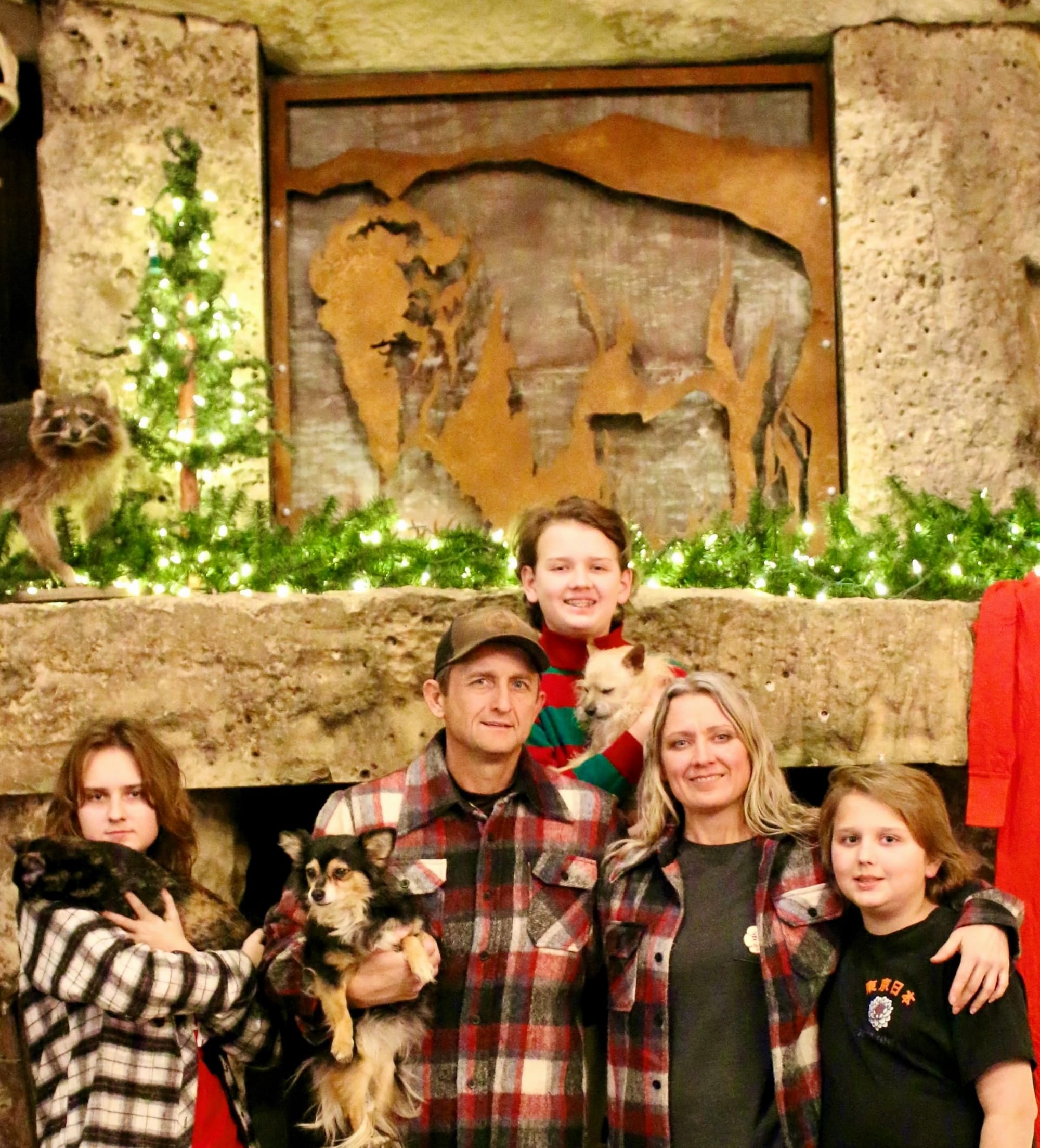
Artist Regina Free had a challenging assignment in her 3-D art class; create an art piece using only paper products. Wood, paint and metal were not options. The sculpture, a massive blue heron, marked the beginning of Free’s next era, the artist, a title she had tucked away for years to tend to life’s responsibilities such as motherhood and business owner.
Free spent more than 250 hours working on the blue heron. It was larger than life. When her class ended, she wasn’t sure what to do with her art piece until she spotted the call for artists for the Chickasaw Nation Southeastern Art Show and Market (SEASAM) last fall.
She entered the heron in the juried competition and won the best of 3-D class. It also greeted guests to her booth at December’s Hushtola’ Art Market at WinStar World Resort, Thackerville, Oklahoma.
Free, a Chickasaw citizen, of Newkirk, Oklahoma, is now preparing for the Artesian Arts Festival, April 13, in Sulphur, Oklahoma. It is only the second time she has participated in the annual First American arts festival.
Free studied art in the ‘90s as a student-athlete at Oklahoma State University. A member of the Cowgirls softball team, she had to divide her time between the studio and the playing field. This situation left little time for classes in sculpture, pottery and other mediums.
When a flood destroyed the bulk of her portfolio her senior year, Free pivoted after earning a bachelor in fine art and pursued a career in education.
“I taught (art) for three or four years, and I really enjoyed it,” she said.
Marriage, working to get the family business afloat and children followed, leaving her little time for creative expression.
“I had to pick one, and so I gave up what I loved for what I loved more, which is my family,” an emotional Free said.
Now that her children are older and the family business is established, the mother-of-three is revisiting her innate drive to create art. She began taking art classes in 2022 at a nearby college to learn new techniques and mediums.
While she was taking a sculpture class, the instructor assigned the all-paper project and set a short deadline for completion.
“I made it small at first, and I was like, ‘Oh this will not do, it’s got to be life-size or bigger,’ and so I did it. Then halfway through, I was (wondering) what was I thinking doing something so big in paper. You begin to question is this really worth it, but it was in the end. It was kind of like my expression of wanting to do some sculptures so bad, so I just went all-out on that one.”
Watercolor, color pencil graphite and ink are her comfort zone, but she is branching out with oil painting and pottery, something she had never experienced before taking the community college class. As she is developing new techniques, Free is researching and incorporating more of her Chickasaw heritage, which comes from her mother’s side of the family, into her work.
“I absolutely loved a (pottery) class so I’m looking forward to making some effigy bowls. I’ve been doing lots of research about the effigy bowls, and so I’m pretty excited that when I get that technique down to be able to start doing some of those.
“When I started researching the effigy bowls it was eye-opening, the skill and craftsmanship and the heritage that is in the bowls. It makes you proud to be part of that legacy. I’m trying to do a lot of research so I can pay honor to their craftsmanship and then maybe get good enough where I can do some variations, and I don’t do disservice to their creativity.”
Learning the history of effigy bowls, pipes and gorgets has been a good way of learning about her own First American culture and heritage and help preserve it, she said.
“For some reason my grandmother was separated from the (Chickasaw) culture, so I didn’t know a lot about it. Someone’s got to keep it going, so it’s been eye-opening and enjoyable.”
Animals are a favorite subject of Free’s art. Her husband is a large and small animal veterinarian, and caring for animals has been central in the family’s day-to-day life for decades.
“I try to not only render the animals accurately, but I want to catch the essence or spirit of what makes up that creature. I usually pay great attention to the eyes, because that is the area which will make or break the image. I also pay attention to anatomical features and try to do it justice and empower the subject matter,” Free said.
A draft horse drawing entitled “Self Portrait” is one of her favorite pieces. A rendition of a 1900s photograph, the large horse is struggling to carry a burden, which is out of frame. A poster of the photograph hung in the veterinary clinic until it was damaged during a remodel. Instead of buying a replacement, Free decided to draw the photo as a gift to her husband. As she toiled on her kitchen table to finish the piece, the white ink and sepia pencil project evolved to symbolize Free’s struggle to maintain balance in her life.
“It’s so powerful. It summarized my battle of not doing my artwork, but like I said you give up something you love for something you love more and so you just push, just get your stuff done. Do what you need to do, and you’ll get there.
“That horse was just getting through it. That burden behind the horse can be anyone’s struggle. It’s really anyone’s self-portrait, and for me it was that desire to do art but knowing there was something more.”
“Self Portrait” is framed with materials reclaimed from a 1950s round pen, symbolic of its original purpose and the illusion of the imperfect circumstances that surround us all, she said. While her children were little, when she had an idea for an art piece, she would sketch it and tuck it away for later.
“Because I knew those sketches will be there, but the time with my kids won’t. I couldn’t do service to both, and so I put the one aside.”
Free and her husband, Adam, have three children, Mada, 19, Adyn, 15 and Readyn, 13. She credits her husband for supporting her artistic endeavors. He built the display case for the heron and leads set up for her art show booths.
“Adam rearranges his schedule so he and the kids can be part of the festivals,” she said. “My children are super supportive and gracious too, especially when the meals turn into frozen pizzas when I’m trying to push through and finish a project.”
About the Artesian Arts Festival
The 11th annual Artesian Arts Festival, a daylong celebration of First American art and culture, is Saturday, April 13, at the Artesian Plaza.
More than 100 First American artists from across the United States are expected to participate, displaying a vast array of original, diverse art. Festivities run from 10 a.m. to 6 p.m.
Hosted by the Chickasaw Nation, the annual Artesian Arts Festival also features First American dance, entertainment and food vendors.
The Artesian Arts Festival takes place at the Artesian Plaza, adjacent to the Artesian Hotel and Spa, 1001 W. First St., Sulphur.
For more information, contact Chickasaw Nation Arts & Humanities at (580) 272-5520, visit ArtesianArtsFestival.com or email ArtistInfo@ Chickasaw.net.
